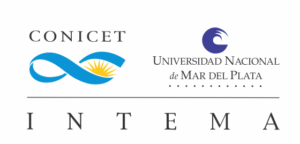The IIBio division is made up of a multidisciplinary group of scientists, researchers in training and technical staff dedicated to the study of the different processes that link microorganisms in one way or another to the field of materials. This includes the phenomena of adherence of microorganisms to surfaces, the formation of biofilms, the synthesis or microbiological modification of materials, the production of bioenergy and the influence of microorganisms on the stability of materials. Given the origin training of its members, the group’s work includes studies of surface modification of materials, tribocorrosion, cathodic protection and selection of materials for specific purposes.
The education of the researchers that compose the group is diverse and includes Biologists, Chemical Engineers and Materials Engineers, which allows a broad and diverse approach to research topics.
Our main lines of fundamental or oriented research are developed in:
- Corrosion processes in metal alloys (steels, copper alloys, aluminum, etc.) and metal matrix composite materials.
- Microbiological corrosion. Bioelectrochemistry of the bacteria involved in this process.
- Biological treatments of household and industrial effluents.
- Biosynthesis of nanoparticles.
- Electronic conduction mechanisms in biological materials and electricity production.
- Fixation of carbon dioxide in bioelectrochemical systems.
- Electro-fermentation processes.
Applications
- Steel producing industries, corrosion inhibitors, oil and gas industry, thermoelectric plants, petrochemical industry, etc.
- Water treatments. From residential to industrial.
- Biofuel production.
- General development of scientific knowledge
- Technological development
Technology Offer
- Failure analysis, characterization of efficiency of corrosion inhibitors, selection of materials for a certain application, design and calculation of cathodic protection systems.
- Biological treatments of household and industrial effluents, technology and advice.
- Ad hoc development or optimization of bioprocesses.
- HR training.

